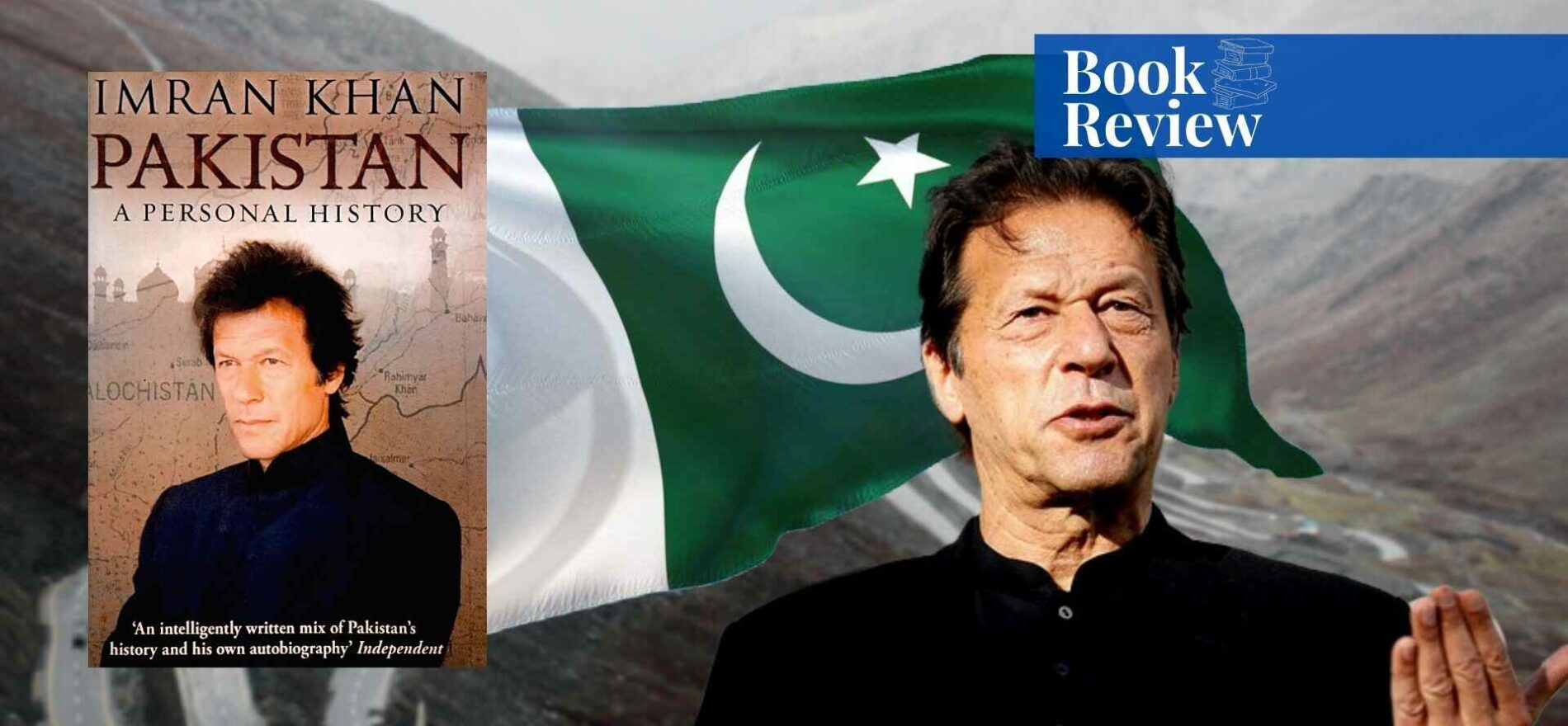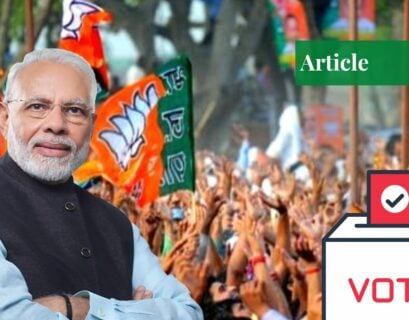Nimra Dawood is an undergraduate student, pursuing a degree in international relations from National Defence University, Islamabad. She is interested in current affairs, geopolitical trends, regional political dynamics, and power transition in the international arena. She loves to critically analyze the changing dynamics of the world and the motives of key actors.
About the Book
The former prime minister of Pakistan, Imran Khan Niazi, has given a mixed history of his life and the political history of Pakistan in his book, “Pakistan: A Personal History”. The book can be regarded as an overall understanding of Imran Khan about the power dynamics of Pakistan, keeping regional and global changes and influences in context.
The narrative of “Haqeeqi Azaadi” or the basis for Khan’s struggle against injustice, corruption, nepotism, incompetence, and slavery can be traced to his life experiences. His experience has ranged from being a cricketer to a philanthropist and social worker who established the first free cancer treatment hospital in Pakistan (The Shaukat Khanum Memorial Hospital) and the Namal University in Mianwali.
About the Author
Imran Khan, born into a well-off Pashtun family had spent most of his life in wealthy and elite surroundings. Having little spiritual awareness and being filled with Western ideas, Khan thought it was the duty of every person to earn more and live a happy life. However, the death of his mother and changing dynamics in his career made him see the helplessness of human beings.
His love for changing the livelihood of the people of Pakistan started during the fund-raising for the cancer hospital—Shaukat Khanum Memorial Hospital—where he saw even the poorest of all were willing to do their best for their fellow Pakistanis. Here, Khan was also asked by common people to come to power as a politician as he was the only person they trusted.
Imran Khan started his political journey through the party named “Tehreek-e-Insaaf” in 1996 and within twenty years he became the biggest populist leader in the history of Pakistan. He was entrusted with the political mandate of Pakistan after the general elections of 2018. Hence, for understanding the political philosophy of Khan, it is important to observe his political, spiritual, and social views and the inclinations that have been shaped by the events that took place during his time at Zaman Park and later at Banigala. This would allow his opponents and followers to know what they are opposing or supporting in the first place.
Synopsis
From Jinnah to Zia
The first chapter of “Pakistan: A Personal History” encompasses the main events in the history of Pakistan from the time of partition to the overthrow of Zulfiqar Ali Bhutto’s government by Zia ul Haq. Imran Khan gives a brief outlook of Jinnah’s vision, Iqbal’s dream, the struggle of intellects at Aligarh University along with the perception and racism showed by the British towards the local population. Khan believes that the state of Pakistan was never meant to be a theocracy.
Additionally, he acknowledged the fact the Indians and Pakistanis were similar to a great extent, and he gave up on prejudice after knowing them during his cricket journey. Also, the fall of Dhaka had created a negative image of Bengalis in his mind, but after getting to know their perspective, he decided never to trust the propaganda and narratives sold by the politicians and military elite.
Khan also realized that the biggest impact of colonialism and oppression done to the people of the subcontinent, especially Pakistanis, was the slavery or inferiority complex embedded in them that had completely shattered the self-esteem and respect of the common man and elite alike.
Religious Awakening
Chapters two and three describe the socio-political conditions of Pakistan before the times of Zia. Khan argues that he had high hopes for Bhutto, as he had told people that they mattered. But he was also like other politicians, ultimately overthrown by the martial law of Zia ul Haq. His imposition of shariah and moral codes backlashed and social problems got worse in the wake of the Afghan Jihad.
By then, Imran Khan’s spiritual awakening had started with the teachings of Eaton, Iqbal, Ali Shariati, and Muhammad Asad. Ultimately, the death of his mother and the sudden injury in his career drew him closer to the Almighty under the spiritual guidance of Mian Bashir.
Khan’s Decision to Challenge the Status Quo
Chapters four deals with the political scenarios during the reign of Zia ul Haq, in which Khan was also invited as a minister but declined. Chapter five shows that Imran Khan was highly disappointed in Benazir Bhutto, his old friend, and her husband because they were looting the nation’s wealth with both hands. Later on, his interaction with Nawaz Sharif made it clear that he was a puppet of the establishment. He realized that Mr. Sharif was only in politics for furthering his business motives.
Even before entering into politics, Imran Khan had seen ordinary people standing with him during the fund-raising project for his hospital. Chapter six shows that after getting formally into politics, his marriage with Jemima Khan was portrayed as a “Jewish conspiracy” against Muslims because his father-in-law was a Jew.
Hence, Khan’s political career shattered his personal life because his wife was maligned and threatened on several occasions. Finally, due to the personal devotion of Khan towards politics and the emotional torture Jemima had to go through, she went back to England where they officially parted ways.
War on Terror and the Tribal Belt
Chapters seven, eight, and nine of “Pakistan: A Personal History” describe the coup of General Pervez Musharraf and the start of the American “War on Terror” in which Pakistan was a frontline ally of the US and NATO forces. Khan seems disappointed with the response and behavior of Musharraf and other politicians who were not concerned with the suffering of the people in the tribal areas of Pakistan. Khan has quoted various references that show the hypocritical nature of Pakistani politicians. He also argues that there was never a military solution to the issue in Afghanistan, which was difficult to understand for the Western nations for more than 20 years.
Conclusion
“Pakistan: A Personal History” is very important for the understanding of Pakistani politics today, after the populism and public craze for Imran Khan. The book will show an exciting history of Pakistan and the life of Imran Khan which is reflected in his politics today. One may find many contradictions between his words and actions, but it is essential to judge a person by his original thoughts and understanding.
If you want to submit your articles/research papers/book reviews, please check the Submissions page.
The views and opinions expressed in this article/paper are the author’s own and do not necessarily reflect the editorial position of Paradigm Shift.


















